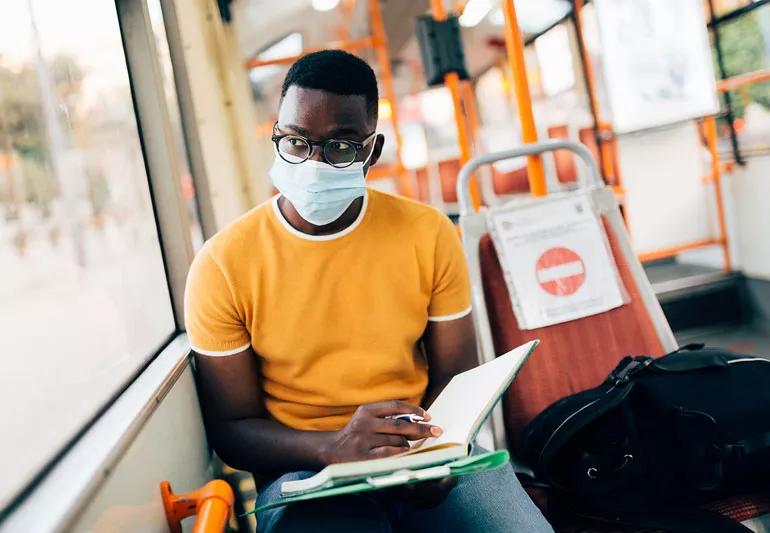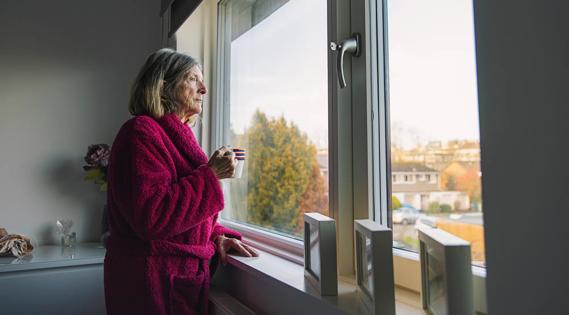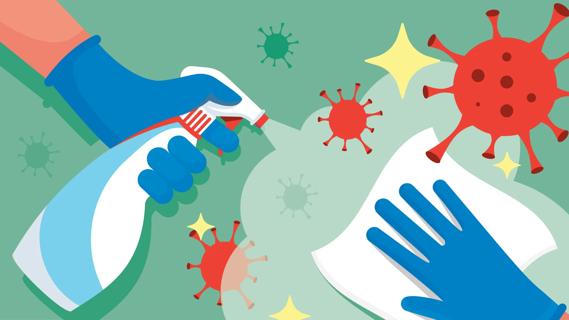Advertisement
Extra precautions can help prevent the spread of COVID-19

Usually, when college students make the trip home for a holiday or winter break, they look forward to catching up with family they haven’t seen in a while and reuniting with old friends. But, as we all know, this year is anything but usual.
Advertisement
Cleveland Clinic is a non-profit academic medical center. Advertising on our site helps support our mission. We do not endorse non-Cleveland Clinic products or services. Policy
Instead, as the holiday 2020 season nears, many college students face a dilemma: They want to be home for the holidays, but they also don’t want to risk bringing COVID-19 home with them.
Whether students stay put on campus or come home is a personal decision that will be different for each family. If they do come home, they should do so carefully.
Healthy young adults generally aren’t at high risk for getting extremely sick with COVID-19. But pulmonary and critical care specialist Joseph Khabbaza, MD, says students attending classes in person may fall into a higher risk category of being carriers and spreaders of COVID-19.
“Anyone who’s in full-time school, that’s going to be a bit higher risk,” he says. “I think part of the challenges of school-age children and young adults in college is that they tend to be the ones that are going to be minimally symptomatic if they are infected with COVID-19.”
Both the process of traveling and the coming together of separate “households” increase the risk that COVID-19 could spread. Following the steps below could help minimize the risk.
To reduce the potential of unknowingly spreading the coronavirus, students should limit their social activities 7 to 14 days before going home.
Advertisement
They should also be on the lookout for any potential COVID-19 symptoms such as fever, cough or body aches. If their school offers COVID-19 testing, it’s a good idea for students to get tested a few days before they leave for break and, if they’re positive, stay put to avoid putting others at risk.
If students will be traveling through busy airports, train stations or other public places, it’s very important that they stay cautious. They should always wear a mask, stay 6 feet away from others when possible and wash their hands frequently.
Once they arrive, students who have not been able to quarantine before returning home should wear a mask indoors, especially around loved ones who are elderly or have a compromised immune system.
“That’s a tough sell to wear a mask at family gatherings, or perhaps in your own home, but it’s really an extra precaution to protect the most vulnerable,” says Dr. Khabbaza.
If possible, it’s best for students to sleep in a separate bedroom and use a separate bathroom from others once they get home. They should also avoid sharing eating utensils, dishes or glasses with other people unless they’ve been washed.
It’s also important that they continue to take the recommended precautions when they go out in public.
By making thoughtful choices, college students can help protect their loved ones and themselves this holiday season.
Advertisement
Learn more about our editorial process.
Advertisement

Studies have shown promising results, but additional research is needed

Infection and inflammation can cause you to lose your voice and have other voice changes until you’re fully healed

A COVID-19 infection can bring on depression or anxiety months after physical symptoms go away

Just like the flu, COVID-19 continues to evolve every year with new and smarter variants

The latest omicron subvariants carry specific mutations that may allow the SARS-CoV-2 virus to be better at evading immune protection

You can work out with mild COVID-19, but not in a gym, and listen to your body and don’t overdo it

Most people can return to work and regular life when they’re symptom-free for 24 hours

Lysol Disinfecting Wipes are just one of more than 500 products approved by the EPA for protection against the SARS-CoV-2 virus that causes COVID-19

If you’re feeling short of breath, sleep can be tough — propping yourself up or sleeping on your side may help

If you fear the unknown or find yourself needing reassurance often, you may identify with this attachment style

If you’re looking to boost your gut health, it’s better to get fiber from whole foods